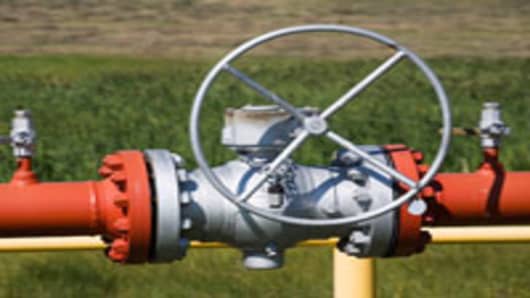"Our genesis is kind of interesting," David Portiz, founder and president of Equitable Origin, said. "It came out of my experience working very closely with the oil and gas industry as well as indigenous communities and nongovernmental organizations."
He immediately recognized the need for a way to differentiate between companies that were doing a good job at being environmentally responsible and those that weren't.
"Our primary founding mission is to create a system which improves the environmental and social responsibility of the oil and gas industry," Portiz said. "We want to improve the on-the-ground practices and what is taking place at these locations globally. Through our system we believe we can raise the bar of environmental and social responsibility in one of the world's largest industries."
Equitable Origin's program allows companies to voluntarily be certified with their "EO100 Standard" by a third-party agency. Certification is based on six principles: corporate governance and accountability, human rights and social impact, fair labor, indigenous rights, climate change and environment, and project life-cycle management. Companies are certified if their performance is above minimum levels in those areas. Portiz and Seale hope that eventually this system will become the norm and being certified will be something all oil and gas companies consider essential.
"We want it to be that if Shell is EO-certified, that is going to make Exxon want to be certified as well because there is going to be a business need and a business concern for them to be," Christian Seale, CEO at EO, said.
We migrate if you will
The idea for Equitable Origin started years before the company's incorporation in January 2009.
"At a young age, I began engaging a case against Chevron in Ecuador," Portiz said. "Through this lawsuit, I recognized the fact that the oil and gas industry and all these other actors needed a proactive system which actively engaged the industry by recognizing and rewarding their practices rather than punitively going after the industry in a means to improve what they are doing."
When Portiz and Seale met each other at Brown University, the two budding entrepreneurs began to put together the idea for their company.
"There is a network of alumni, students and professors at Brown that engrained this idea of entrepreneurism and business savvy, which we definitely tapped into and took advantage of," Seale said.
With the backing of that network, Portiz, then a sophomore, and Seale, a junior, started Equitable Origin.
"I'm 23 years old, I don’t have any formal business training," Portiz, a Rhodes Scholar who will graduate from Brown next month, said. "I've taken a lot of business courses at Brown, but we saw a need based on our experiences working in the space. We realized there was an opportunity, and by recognizing that opportunity we felt that it was an opportune time to create a business around it."
The start of the business, however, was not completely smooth.
"Quite frankly, we have learned as we have gone," Portiz said. "One thing we have been able to do is find really experienced advisers and really seasoned individuals who have enabled us to not make a lot of the mistakes that a lot of early-stage companies make."
Because of that assistance, the company has begun discussions with companies in Ecuador, Colombia, Mexico, Brazil and Peru. The company now has 11 full-time employees and four consultants as well as a regional office in Quito, Ecuador, and other offices in Providence, R.I., New York and Washington, D.C.
"We migrate if you will," Seale said.
That will make your life a lot easier
Even though Portiz and Seale are still in their 20s, they have learned quite a bit from their 2-year-old business.
"Early on, when we started, an adviser told me the two most important things in business and arguably life are you need to be able to communicate clearly and manage expectations," Portiz said. "Being clear with people about what you expect and managing the expectation in regards to that relationship are two really simple things that will make your life a lot easier."
Seale believes that successful companies must build upon those two qualities by bringing in the right people and putting the right team in place.
"The importance of getting the right mix of people and the right team cannot be overstated," Seale said. "David and I spend a large portion of our time making sure that we are bringing in people with the right skill sets and personalities. At the end of the day, an organization is based on its vision, its mission and its people."


